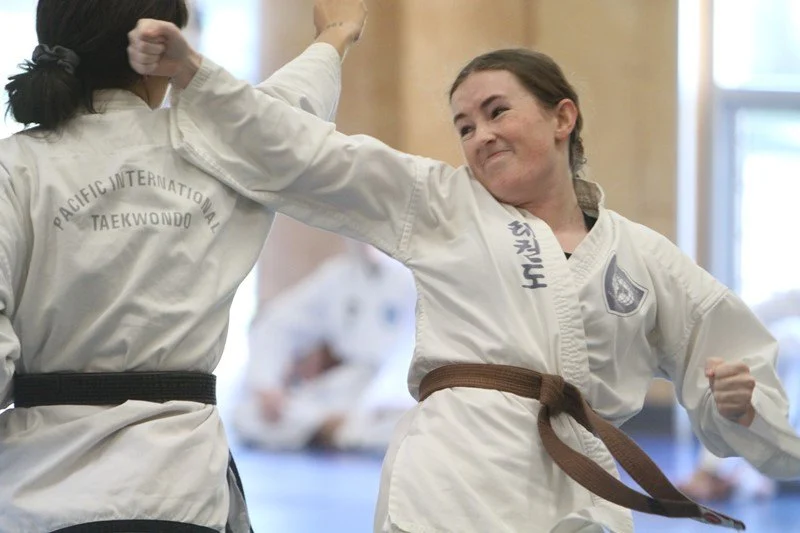
How to Execute a Back Fist Strike (Dung Joomuk Chigi) with Speed
- 1. Understanding the Back Fist Strike (Dung Joomuk Chigi)
- 2. Step-by-Step Guide to Executing a Back Fist Strike
- 3. How to Increase Speed in Your Back Fist Strike
- 4. Common Mistakes to Avoid in the Back Fist Strike
- 5. Real-Life Example: Back Fist Strike in Action
- 6. Recommended Tae Kwon Do Gear to Improve Speed and Agility
1. Understanding the Back Fist Strike (Dung Joomuk Chigi)
The back fist strike, or Dung Joomuk Chigi in Korean, is one of the fastest and most effective techniques in Tae Kwon Do. This strike is executed by swinging the back of the fist toward the target, often used to strike an opponent’s head, face, or upper body. The key advantage of the back fist is its speed and surprise, making it an excellent tool for quick attacks in sparring or self-defense situations.
Executing a back fist strike with precision and speed is not only a demonstration of skill but also requires proper technique, body alignment, and timing. In this article, we’ll break down the mechanics of the back fist strike, how to increase its speed, and common mistakes to avoid for flawless execution.

Giordano's ATA Martial Arts / giordano's ata martial arts
MurrietaRiverside CountyCalifornia
24540 Village Walk Pl, Murrieta, CA 92562, USA
2. Step-by-Step Guide to Executing a Back Fist Strike
To execute a back fist strike effectively, follow these steps for maximum speed and precision:

Rising Storm Training Academy / rising storm training academy
BurlingtonMiddlesex CountyMassachusetts
123 Muller Rd, Burlington, MA 01803, USA
Step 1: Starting Position
Begin in a neutral or fighting stance with your feet shoulder-width apart. Your body should be relaxed yet alert, with your hands up in a defensive position. For a back fist strike, the back fist is delivered from your rear hand (the hand farthest from your opponent).
Step 2: Rotation of the Body
To generate speed and power, rotate your hips and shoulders. As you rotate your torso, pivot on your lead foot while keeping your head aligned with the target. This body rotation is critical for building momentum and making the strike faster and more impactful.
Step 3: The Fist Movement
As your body rotates, your rear fist should swing outward and backward in a quick motion. Your arm should be slightly bent, and the back of your fist should strike the target. The motion should be fluid and quick, relying on the momentum generated by your torso rotation.
Step 4: Follow Through and Reset
After delivering the strike, allow your arm to follow through with the motion. This ensures maximum impact and power. Quickly reset your stance and be prepared for the next move or defensive action. A strong follow-through increases the effectiveness of your back fist strike, but be careful not to overextend your arm, as this could affect your balance.
3. How to Increase Speed in Your Back Fist Strike
Speed is crucial for the back fist strike to be effective. The faster the strike, the harder it is for your opponent to react. To improve your speed, consider the following tips:
1. Improve Core Strength
A strong core is essential for generating quick, explosive movements. By strengthening your core muscles, you can enhance your ability to rotate your body quickly, which is vital for executing a fast back fist strike. Incorporate exercises like planks, Russian twists, and leg raises into your routine to strengthen your core.
2. Work on Wrist and Forearm Strength
Speed in your back fist strike comes from not just your body rotation but also your wrist and forearm. Perform wrist curls and forearm exercises to build strength in these areas. This will allow you to snap your fist into the target with more speed and precision.
3. Focus on Timing and Coordination
Practicing the back fist strike with a partner or on a bag will help you work on timing and coordination. By practicing the strike in different scenarios, you can improve your ability to generate speed by anticipating your opponent’s movements or reacting quickly in sparring. Start slow, then gradually increase your speed as you become more comfortable.
4. Common Mistakes to Avoid in the Back Fist Strike
Even experienced practitioners can make mistakes when performing a back fist strike. Avoiding these common errors will ensure your technique is both fast and effective:
1. Overextending the Arm
Overextending your arm during the back fist strike can lead to a loss of balance and power. Ensure your arm is slightly bent and that you’re not reaching too far out. This will help you maintain stability and control.
2. Lack of Body Rotation
Some practitioners may rely solely on their arm to generate the strike’s power. This leads to a slower, weaker strike. Proper body rotation is key to generating speed and power in the back fist strike. Make sure to rotate your hips and shoulders for a fluid and powerful strike.
3. Insufficient Follow-Through
Failing to follow through with your strike can reduce its effectiveness. After making contact, continue the motion of the arm to increase impact. This ensures that the strike hits with full power, rather than just tapping the target.
5. Real-Life Example: Back Fist Strike in Action
One of the most impressive examples of the back fist strike in action comes from the 2012 London Olympics, where a Tae Kwon Do athlete delivered a lightning-fast back fist strike during a sparring match. The speed and precision of the strike left their opponent with little chance to block, securing a crucial point and ultimately helping the athlete win the match.
This real-life example shows the power of the back fist strike when executed with proper technique and speed. By practicing the right mechanics and building the necessary strength and speed, you can replicate this level of effectiveness in your own sparring.
6. Recommended Tae Kwon Do Gear to Improve Speed and Agility
To practice your back fist strike and improve your speed and agility, having the right training gear is essential. At Jeuns TKD Hub, we offer a range of products designed to support your training:
1. Lightweight Martial Arts Uniform
A lightweight uniform allows for better movement and flexibility, essential when performing quick strikes like the back fist. Make sure your uniform allows for a full range of motion without restrictions.
2. Focus Mitts
Focus mitts are great for practicing precision and speed. They allow you to target specific areas, helping you improve your back fist technique while training with a partner.
3. Speed and Agility Training Tools
Speed ladders and resistance bands can help enhance your footwork, coordination, and overall agility. These tools are ideal for improving your reaction time, which directly affects the speed of your back fist strike.

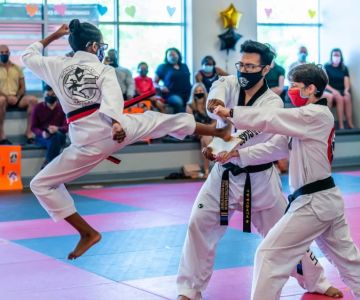
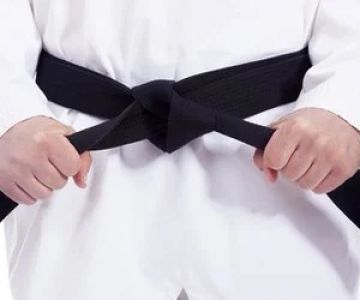
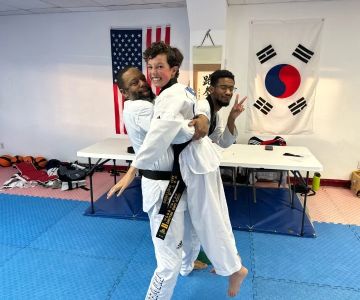
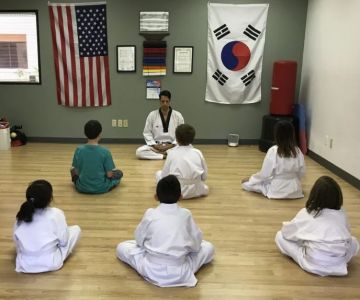
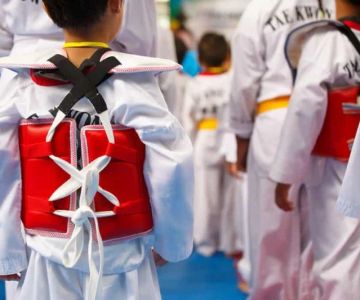
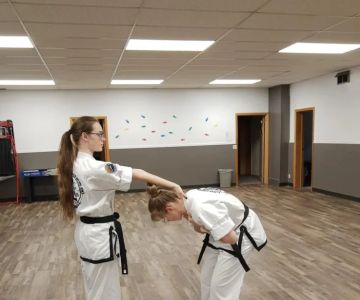
 Master Chang's Martial Arts Durham4.0 (86 reviews)
Master Chang's Martial Arts Durham4.0 (86 reviews) Complete Martial Arts Club of Hershey4.0 (76 reviews)
Complete Martial Arts Club of Hershey4.0 (76 reviews)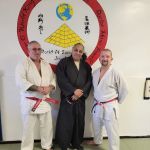 Susquehanna Valley Academy of Martial Arts0.0 (0 reviews)
Susquehanna Valley Academy of Martial Arts0.0 (0 reviews) Cordova's Taekwondo5.0 (2 reviews)
Cordova's Taekwondo5.0 (2 reviews) Maple Valley Martial Arts Center5.0 (4 reviews)
Maple Valley Martial Arts Center5.0 (4 reviews) Evolve Martial Arts4.0 (59 reviews)
Evolve Martial Arts4.0 (59 reviews)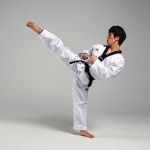 How to Execute a Jumping Roundhouse Kick to the Head
How to Execute a Jumping Roundhouse Kick to the Head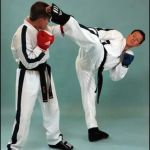 How to Execute a Double Kick Combination in Sparring
How to Execute a Double Kick Combination in Sparring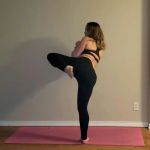 How to Perform a Flawless Axe Kick: A Step-by-Step Guide
How to Perform a Flawless Axe Kick: A Step-by-Step Guide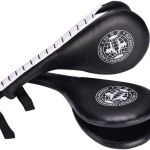 DIY Tae Kwon Do Training Equipment for Home Practice
DIY Tae Kwon Do Training Equipment for Home Practice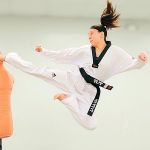 How to Increase Your Vertical Jump for Tae Kwon Do Flying Kicks
How to Increase Your Vertical Jump for Tae Kwon Do Flying Kicks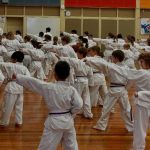 The History of the Tae Kwon Do Peace Corps
The History of the Tae Kwon Do Peace Corps